- Home
- Robert Rankin
The Chickens of Atlantis and Other Foul and Filthy Fiends Page 6
The Chickens of Atlantis and Other Foul and Filthy Fiends Read online
Page 6
‘Peoples of the world,’ he called, in good plain English. ‘Peoples of the world, welcome one and welcome all to this glorious occasion.’
I whispered into the ear of Mr Bell. ‘Am I to understand,’ I whispered, ‘that English is the universal tongue of this period?’
Mr Bell made grumbling sounds. ‘Invented by chickens?’ he muttered.
The chap in the hat continued. ‘We want you all to have a really good time today,’ was what he said. ‘So let us get into the spirit of the thing by beginning with a wave.’
Folk in the grandstand waved to the chap. The chap waved back at them. ‘That is not precisely what I meant,’ he called out through his mouth-trumpet. ‘People in the far end of the stand there—’ and he pointed ‘—raise your hands, then the people seated to the right of them do so, then those to the right of them. Let's have a go. When I say . . . wait for it . . . go!’
And the people at the far end of the stand raised their hands, then those next to them and so on. And when our turn came we raised ours, too, and it was rather fun.
‘It is called an Egyptian Wave,’ shouted the man standing on the nicely mown grass.
We did the Egyptian Wave a number of times. But it eventually became subject to the law of diminishing returns and the chap suggested that we should all introduce ourselves to our neighbours and then went on to entertain us with several popular songs of the day. Which were jolly enough in their way, but somewhat similar in content as each consisted of nothing more than praise for Akhenaten. By the time he led us all in a chorus of ‘For He's a Jolly Good Pharaoh’, I for one felt that perhaps Mr Bell and I should quit the grandstand for a while and seek out the cricket club bar.
Mr Bell clearly felt likewise, for he was shaking and shaking his head. ‘Wrong wrong wrong,’ said he, through tightly gritted teeth. ‘This will all have to be stopped.’
‘But surely it is,’ I said. ‘For none of this nonsense will be found in the pages of history.’
‘Good point,’ said Mr Bell. ‘This twisted version of events is unknown in our time.’
‘Probably because you will put it to rights,’ I said, which pleased Mr Bell, for he was a man who responded favourably to compliments.
There now came to our ears sounds of a fanfare and a great cheer arose from the grandstand crowd.
Colourful folk were marching out onto the cricket pitch – ladies most immodestly dressed, wearing very little at all, in fact, plus jugglers and clowns and elephants, too. This had more the appearance of a circus parade than a coronation. But as there were monkeys also, my enthusiasm for it went undiminished.
The monkeys called out and I called back. Called back in the monkey tongue.
And now came chickens, which I did not care for, each dressed in robes and supporting the flag of some nation or other. Then there came a mighty palanquin draped with many colourful silks and supported upon the shoulders of many Nubian slaves.
Mr Bell raised his binoculars once more to study the figure who lounged atop that palanquin, upon many a comfortable cushion amidst concubines wearing no clothes at all, munching eel pie and mash with liquor.
There was no doubt at all as to who this figure was. And why would there be, for this was to be his coronation. This was Akhenaten, God-Pharaoh of Akhetaten, known to my companion and I alone as Arthur Knapton, erstwhile cockney bootboy, Pearly Emperor and a man of considerable ambition.
Mr Bell cried out, ‘Oh no!’ and pointed with some wildness. I followed the direction of these wild pointings and my eye fell upon their cause.
The God-Pharaoh's palanquin was flanked by bodyguards, as one might reasonably expect. It was the nature of these bodyguards, however, that gave Mr Bell, and indeed myself, considerable cause for concern.
For these bodyguards were not Nubian slaves and nor were they those horrible overgrown chickens.
The bodyguards were something more and something they should not be.
‘Your dear dead mother,’ I said to Mr Bell. ‘Those bodyguards are Martians!’
9
r Bell reached for his ray gun.
I cried, ‘No, don't!’ in his ear.
For although my companion prided himself upon his marksmanship, I felt it imprudent to take pot-shots at a pharaoh whilst in the midst of a grandstand full of his followers.
‘You are right,’ said Mr Bell, and he patted my head and told me not to worry.
But worry I did about those horrid Martians.
There are several things known to Mankind which I believe are referred to as ‘Eternal Verities’, such as the fact that a swan can break a man's arm with its wing, that there is no such thing as a seagull, and that you should never annoy a wasp. Or indeed that if you come face to face with a tiger in the jungle, you should turn slowly around, bend over and put your head between your legs. This will scare away the tiger.
All right, gentle reader, you might have your doubts about the last one, but in the world I grew up in, it was considered an ‘Eternal Verity’. Something you just knew to be true.
Something like the fact that Martians cannot live upon Earth because Earthly bacteria are fatal to them.
Everybody knows that!
‘We are leaving,’ said Mr Cameron Bell. ‘Come, Darwin, follow me. We shall away from here and formulate a plan for Akhenaten's destruction.’
‘But we have such a good seat,’ I complained. ‘And though I do not care for the looks of those Martians, I would really rather stay and watch the show.’
‘Everything is wrong,’ said Mr Bell. ‘Everything. We must return to the time-ship and reset the controls. Perhaps we have fallen into some alternative past by mistake. I will need to think long and hard about these matters.’
‘Mr Freud says that music is a good therapy,’ I said, and then I ceased to speak.
Because suddenly it became rather clear to me that the crowd in our immediate vicinity were no longer viewing the goings-on upon the cricket pitch. Rather they had become intensely interested in the conversation that Mr Bell and I were having.
A conversation which to their ears must have been of considerable interest, it apparently being that between a would-be assassin and a talking ape.
I had on several previous occasions seen a crowd turn ugly. I recall well the lynch mob in Wormcast, Arizona, which marched upon myself and my then-employer Colonel Katterfelto in the company of flaming torches. It had all been a misunderstanding, really. I had entered the general store and enquired regarding the availability of bananas. There ensued something of a furore amongst these uneducated townsfolk, who drew the conclusion that Colonel Katterfelto was a black magician and I a witch's familiar.
That situation was not quite so far removed from the one in which I presently found myself.
‘Settle down, please,’ cried Mr Cameron Bell in a most authoritative tone. ‘I am the Great Mage Bellinski and this talking ape is the creation of High Magick.’
I was not altogether certain that Mr Bell had chosen an entirely appropriate bogus explanation. But he went on.
‘This beast is a present for my dear friend Akhenaten. Should anyone harm either him or myself, the great God-Pharaoh will have them boiled alive. Do I make myself understood?’
The ugly crowd showed no immediate signs of beauteous transformation.
‘Sing them a song,’ said Mr Bell.
‘I should do what?’ I replied.
‘Sing them a song. It will ease the situation.’
I shrugged my shoulders. Because for the most part I did trust my companion's judgement.
‘I would like to sing you a song,’ I called out to the crowd that now glowered upon us. ‘It is a popular music hall ditty and goes by the name of—’
Articulating phrases such as ‘Kill the heretic!’, the crowd closed in about myself and the erstwhile Mage Bellinski.
Now, being the agile and nimble fellow that I am, I hastily swarmed up one of the decorated columns supporting the grandstand roof and from a place of sa
fety on high made forceful representations as to my opinion of the crowd.
The crowd responded by hurling things up at me – shoes, coins, heavy and dangerous objects. These failed singly to strike my person and instead descended to alight upon members of the crowd, evoking cries of pain and distress.
Mr Bell had his ray gun out and I had no objection whatsoever to him using it.
‘Stand back from me!’ he shouted, daring the crowd to approach him further. But he was hopelessly outnumbered and the crowd closed in upon him.
As Mr Bell went down beneath a welter of blows, my only resource was to drop my trousers, produce and fling down dung.
But sadly this did not ease the situation.
Had it not been for the intervention of the chicken militia hens, I fear that those bad folk would have killed poor Mr Bell. I gazed down from on high to see the beastly birds, easily six feet in height, wading forcefully through the crowd, flinging folk to the left and to the right with their muscular wings. It caused me to think of the power of swans’ wings, but only for a moment. Mr Bell was hauled to his feet and hauled from the grandstand. I fled up and over the roof and made good my escape.
The chickens were not kind to Mr Bell. I swung from one high vantage point to another, keeping him ever in sight. At length, he was dragged into what I took to be the police station and his protestations of innocence, mingled with the sounds of blows, were swallowed up to silence.
I sat upon a rooftop and fretted.
I could not bear the thought of further harm coming to my dearest friend, but there appeared to be a terrible inevitability that further harm would indeed come. And probably terminate in that good man's execution.
I would have to rescue Mr Bell.
The street before the police station, itself a monumental edifice of pink and purple marble, was deserted. All of Akhetaten, it appeared, had gone to the cricket ground. I descended with caution to the street and crept about the building, seeking the door with the catflap.
I will make no bones about it being a tradition, or an old charter, or something, that every police station has a police station cat. It does. You know it's true. It does, it has done, it always will do. And so I sought out the catflap.
It was a most substantial flap and so I had no difficulty entering the building. I slipped along a corridor and soon found myself to the rear of the main entrance hall.
It was a large and cavernous room, high of ceiling, its walls frescoed in the Egyptian style. Pictorial representations of torture and death found great favour here and did not raise my spirits one little bit. I did, however, spy Mr Bell, held between chickens and facing a great administrative desk.
Behind this desk, decked out in a dark blue tunic and trousers, with his bottom parts towards my direction, sat a fellow of considerable girth who spoke in a basso profundo and appeared to be in the very grumpiest of moods.
‘Name?’ this fellow roared at Mr Bell.
‘I have told you my name,’ said the great detective. ‘I am King Cameron of Albion and you would do well to release me at once, amidst a flood of profuse apology.’
‘I said, name!’ roared the fellow once more.
‘And I have told you my name,’ said Mr Bell.
‘I see.’ The fellow leaned back upon his stool, his big bottom cheeks straining at his dark blue trouserings. ‘So I will find your name in the Register of Visiting Royalty, where each official representative from a foreign realm is to be found? Yes?’
‘I use a number of different names when travelling,’ said Mr Bell bravely. ‘Call out a few and I will tell you which is one of my own.’
‘Sir,’ said he of the prodigious bottom cheeks, ‘I would dearly have loved to be watching the coronation, but my duty dictates that I must sit here for the balance of the day. I frankly care not whether you are Solomon or the Queen of Sheba. You caused a public nuisance, and for this the sentence is death. Do you have anything to say in your defence before I pass this sentence?’
‘Much,’ said Mr Bell.
‘I thought so,’ said the other. ‘But I am not inclined to listen. Officers, remove this condemned man to a cell. We'll have him executed first thing tomorrow.’
‘I protest,’ said Mr Bell.
‘And I would be surprised if you did not.’
‘Be it upon your own head, then,’ said Mr Bell. ‘Let history remember you as the man who drew down the vengeance of Albion upon Akhetaten and brought about its destruction.’
‘You will recall that we have failed to establish your credentials,’ said the chap with his rearward end to me, ‘and as such the validity of your threats remain a matter for debate. I will take my chances with the pages of history. Off to the cells with this criminal.’
And with that he waved away Mr Bell, whose further protestations were stilled by further blows.
I crept past the big-bottomed man and, keeping to the shadows, followed Mr Bell as he was thrust down stone steps to that horrid subterranean realm of cells and torture chambers.
I passed by many doors. Some were clearly those of cells, but I passed one door marked PRIVATE RECORDS KEEP OUT. Crudely scrawled in English, these words were, and I viewed them with some puzzlement.
At little length, Mr Bell was flung into a cell and the door closed and bolted upon him. I hid as best I could as the chicken militia hens swaggered back along the corridor and took their leave.
I watched the horrid things depart and trembled not a little.
And then I set to the task of releasing my bestest friend.
10
ow nice it was to see a smile on the face of Mr Bell.
When eventually I peeped in through the little grille in his cell door and blew a raspberry at him.
I say ‘eventually’ because I had waited for what I considered to be a respectable length of time before seeking to effect his rescue. I felt that my friend might do well to endure a solitary period during which he might engage in valuable contemplation. To dwell upon the error of his ways and, hopefully, given the mortal danger that embraced him, to abandon this wretched venture and accompany me instead to Beethoven's concert.
I counted up to one thousand, but went no further as I could abide the smell of this dismal place no longer.
‘Mr Bell,’ I called as I grinned in and waggled my fingers. ‘I have come to rescue you.’
Mr Bell smiled back at me. Although he did it with difficulty as his face displayed many a graze and a bruise.
‘You are as ever a hero, Darwin,’ he said.*
I put up a struggle with the bolt and finally opened the door.
Mr Bell tousled my head and thanked me for saving his life.
‘Let us return to the Marie Lloyd and be off upon our way,’ I said. ‘There is nothing more we can do here. When they find your cell empty they will hunt you down. It is obviously far too dangerous for us to remain here.’
‘I do so agree,’ said Mr Bell.
And I was glad for that.
‘However, there are certain things that must be done first.’
‘Lunch would be nice,’ I said, for my stomach grumbled. ‘But in a part of this city far distant from here.’
‘It is here that these things must be done,’ said Cameron Bell.
As we made our way back along the grim passage, Mr Bell stopped of a sudden.
‘Our investigations begin here,’ said he.
We stood before the door that had the words PRIVATE RECORDS KEEP OUT scrawled upon it in English.
I looked up at Mr Bell, who tapped his snubby nose. ‘I caught a glimpse of this as I was being bullied down the corridor,’ said he. ‘The crude lettering of my old bootboy Arthur Knapton was instantly recognisable to me.’
And Mr Bell examined the door. ‘Locked with a key, this one,’ he observed.*
I turned to take my leave.
‘Not quite yet, Darwin.’
And I turned back to find Mr Bell tinkering in his trouser pockets. Presently he drew out his little ro
ll of house-breaking instruments and set to an act of lock-picking.
I glanced fearfully up and down the passageway. I had no wish at all to remain here and cared not at all for whatever PRIVATE RECORDS this locked room contained.
The locked room soon became an unlocked room. Mr Bell pressed open the door and entered it. I followed hard upon his heels and closed the door behind us.
We stood in darkness a moment or two, then the room came to a sudden illumination and we cried out in some surprise at all that lay before us.
Mr Bell was examining a switching arrangement upon the wall. His finger rested upon it. ‘Electrical lighting,’ said he.
‘But look.’ And I pointed. ‘See all of this.’
My companion now viewed the contents of the room that spread all around and about us. We stood within a vault of considerable size, in what appeared to be—
‘A library,’ said Mr Cameron Bell. ‘And if I am not entirely mistaken—’ and he plucked a book from one of the nearest shelves and examined it with interest ‘—the British Library. All twenty thousand, two hundred and forty volumes, I suspect.’
The shelves diminished into hazy perspective.
They appeared to me to go on and on for ever and ever.
‘Surely there are many more books than that in here,’ I said.
Mr Bell nodded at this. ‘I would hazard a guess that this vault contains some of the great lost libraries of history. The Alexandrian Library, the Library of Ephesus. Perhaps even—’
Mr Bell replaced the book, hitched up his trousers and strode forward. I followed on, a-shaking my head as Mr Bell ‘oohed’ and ‘ahed’ and pointed here and there.
Eventually he stopped and said, ‘He has acquired them all.’
I shrugged and said I did not understand.
‘He has acquired the books from all the lost libraries, including those that were presumed to be purely mythical – those of Mu and Lemuria and Atlantis.’
‘How can that be?’ I enquired.
Mr Bell did thoughtful head-noddings. ‘I have a theory,’ he said, ‘and I will tell you all about it. But not here.’

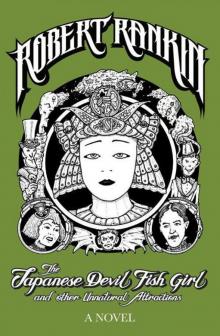 The Japanese Devil Fish Girl and Other Unnatural Attractions
The Japanese Devil Fish Girl and Other Unnatural Attractions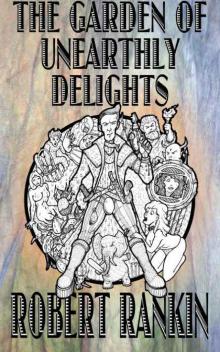 The Garden of Unearthly Delights
The Garden of Unearthly Delights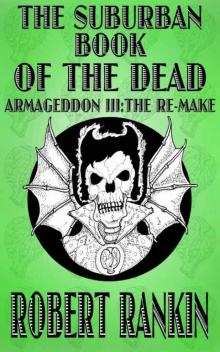 The Suburban Book of the Dead: Armageddon III: The Remake
The Suburban Book of the Dead: Armageddon III: The Remake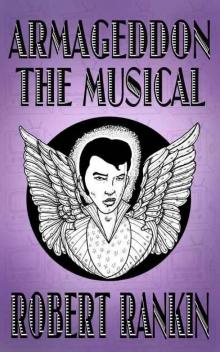 Armageddon_The Musical (Armageddon Trilogy Book 1)
Armageddon_The Musical (Armageddon Trilogy Book 1)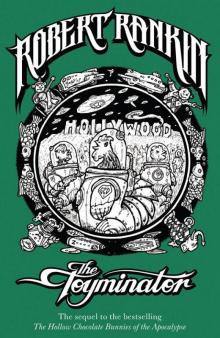 The Toyminator
The Toyminator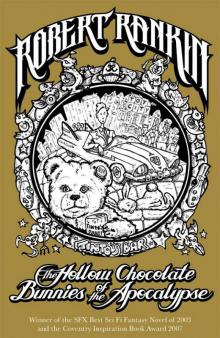 The Hollow Chocolate Bunnies of the Apocalypse
The Hollow Chocolate Bunnies of the Apocalypse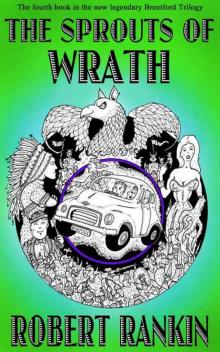 The Sprouts of Wrath
The Sprouts of Wrath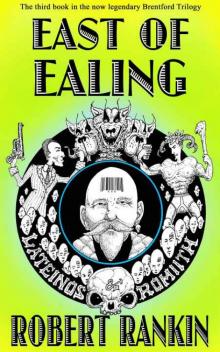 East of Ealing
East of Ealing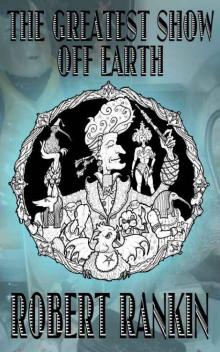 The Greatest Show Off Earth
The Greatest Show Off Earth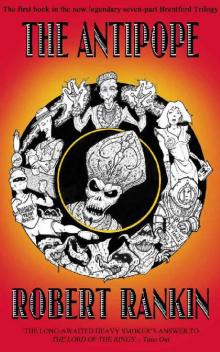 The Antipope
The Antipope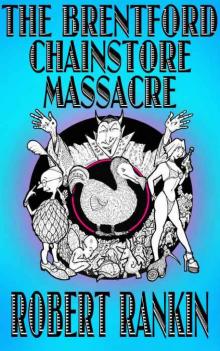 The Brentford Chainstore Massacre
The Brentford Chainstore Massacre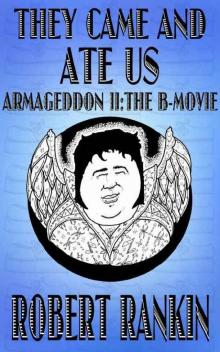 They Came and Ate Us_The B-Movie (Armageddon Trilogy 2)
They Came and Ate Us_The B-Movie (Armageddon Trilogy 2)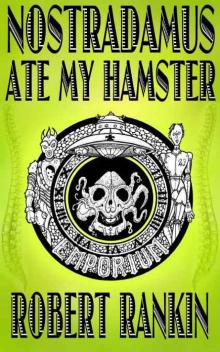 Nostradamus Ate My Hamster
Nostradamus Ate My Hamster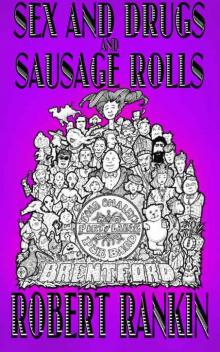 Sex and Drugs and Sausage Rolls
Sex and Drugs and Sausage Rolls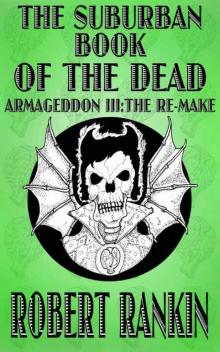 The Suburban Book of the Dead_The Remake (Armageddon Trilogy 3)
The Suburban Book of the Dead_The Remake (Armageddon Trilogy 3)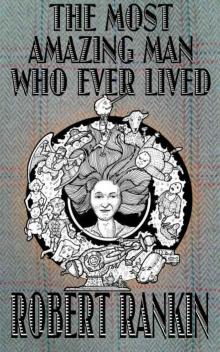 The Most Amazing Man Who Ever Lived
The Most Amazing Man Who Ever Lived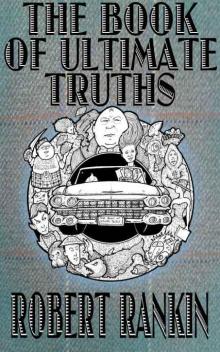 The Book of Ultimate Truths
The Book of Ultimate Truths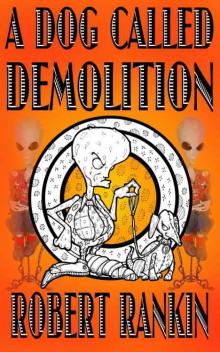 A Dog Called Demolition
A Dog Called Demolition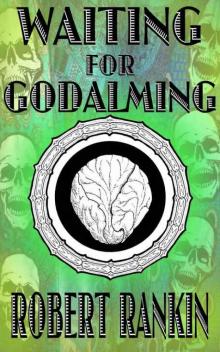 Waiting for Godalming
Waiting for Godalming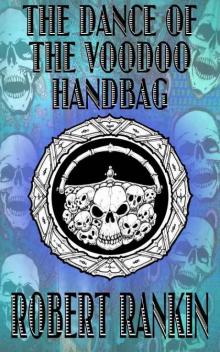 The Dance of the Voodoo Handbag
The Dance of the Voodoo Handbag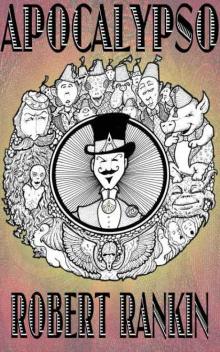 Apocalypso
Apocalypso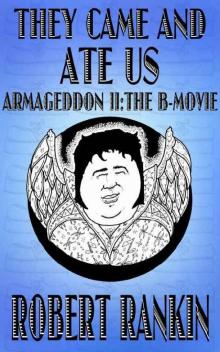 They Came and Ate Us: Armageddon II: The B-Movie
They Came and Ate Us: Armageddon II: The B-Movie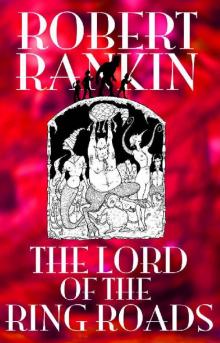 The Lord of the Ring Roads
The Lord of the Ring Roads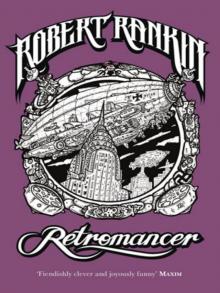 Retromancer
Retromancer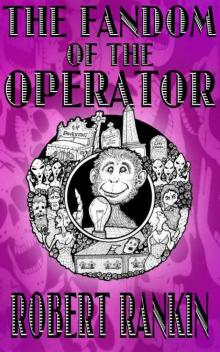 The Fandom of the Operator
The Fandom of the Operator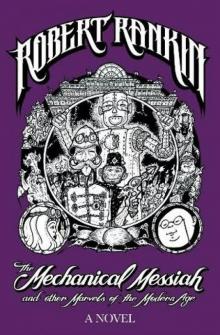 The Mechanical Messiah and Other Marvels of the Modern Age
The Mechanical Messiah and Other Marvels of the Modern Age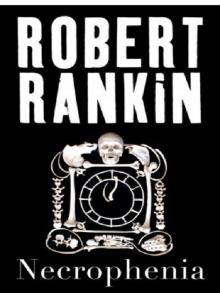 Necrophenia
Necrophenia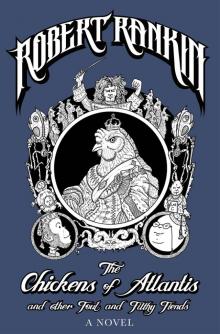 The Chickens of Atlantis and Other Foul and Filthy Fiends
The Chickens of Atlantis and Other Foul and Filthy Fiends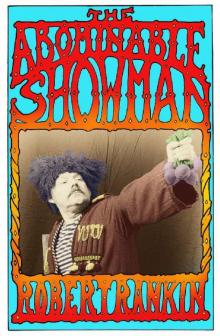 The Abominable Showman
The Abominable Showman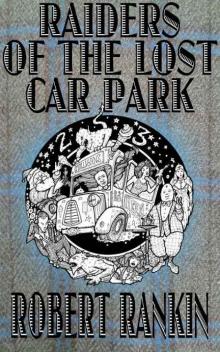 Raiders of the Lost Carpark
Raiders of the Lost Carpark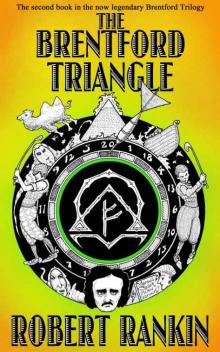 The Brentford Triangle
The Brentford Triangle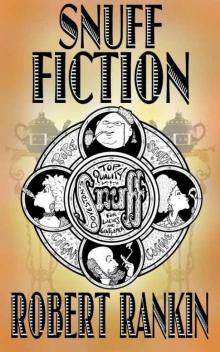 Snuff Fiction
Snuff Fiction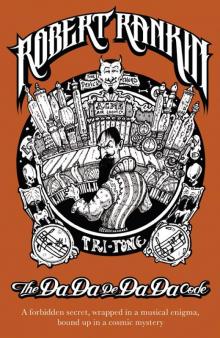 The Da-Da-De-Da-Da Code
The Da-Da-De-Da-Da Code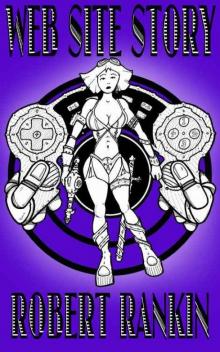 Web Site Story
Web Site Story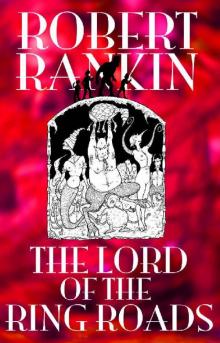 The Lord of the Ring Roads (The Final Brentford Trilogy Book 1)
The Lord of the Ring Roads (The Final Brentford Trilogy Book 1)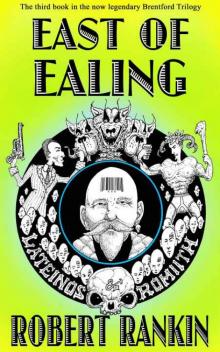 East of Ealing (The Brentford Trilogy Book 3)
East of Ealing (The Brentford Trilogy Book 3)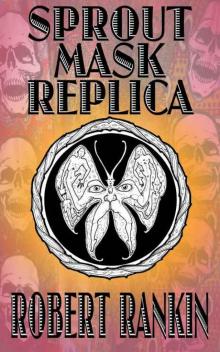 Sprout Mask Replica (Completely Barking Mad Trilogy Book 1)
Sprout Mask Replica (Completely Barking Mad Trilogy Book 1)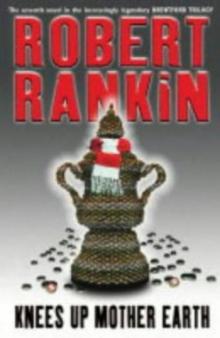 Knees Up Mother Earth bs-7
Knees Up Mother Earth bs-7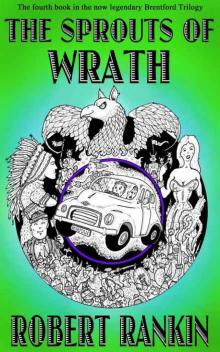 The Sprouts of Wrath (The Brentford Trilogy Book 4)
The Sprouts of Wrath (The Brentford Trilogy Book 4)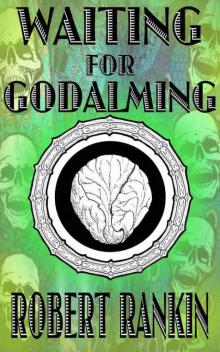 Waiting for Godalming (Completely Barking Mad Trilogy Book 3)
Waiting for Godalming (Completely Barking Mad Trilogy Book 3)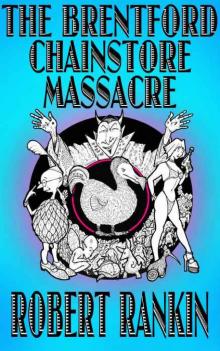 The Brentford Chainstore Massacre (The Brentford Trilogy Book 5)
The Brentford Chainstore Massacre (The Brentford Trilogy Book 5)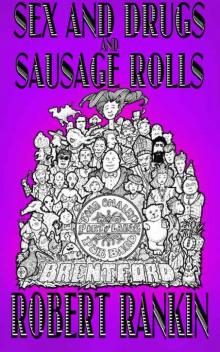 Sex and Drugs and Sausage Rolls (The Brentford Trilogy Book 6)
Sex and Drugs and Sausage Rolls (The Brentford Trilogy Book 6)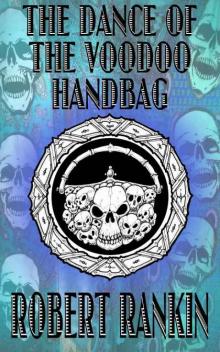 The Dance of the Voodoo Handbag (Completely Barking Mad Trilogy Book 2)
The Dance of the Voodoo Handbag (Completely Barking Mad Trilogy Book 2)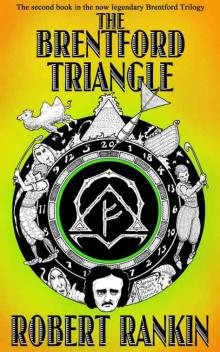 The Brentford Triangle (The Brentford Trilogy Book 2)
The Brentford Triangle (The Brentford Trilogy Book 2)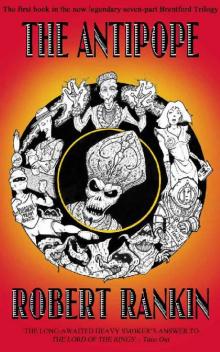 The Antipope (The Brentford Trilogy Book 1)
The Antipope (The Brentford Trilogy Book 1)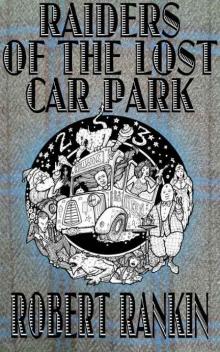 Raiders of the Lost Car Park (The Cornelius Murphy Trilogy Book 2)
Raiders of the Lost Car Park (The Cornelius Murphy Trilogy Book 2)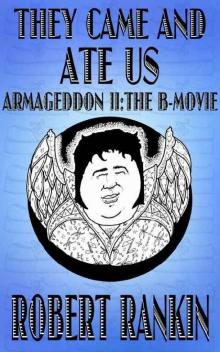 They Came and Ate Us - Armageddon II_The B-Movie (Armageddon Trilogy Book 2)
They Came and Ate Us - Armageddon II_The B-Movie (Armageddon Trilogy Book 2)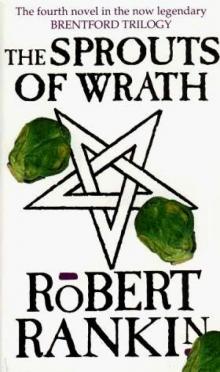 The Sprouts of Wrath bs-4
The Sprouts of Wrath bs-4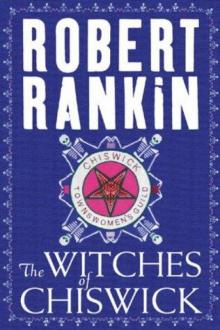 The Witches of Chiswick
The Witches of Chiswick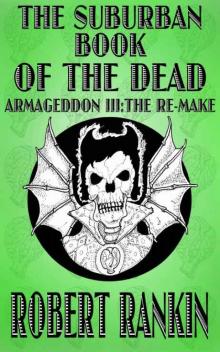 The Suburban Book of the Dead - Armageddon III: The Remake (Armageddon Trilogy 3)
The Suburban Book of the Dead - Armageddon III: The Remake (Armageddon Trilogy 3)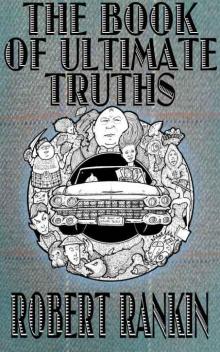 The Book of Ultimate Truths (The Cornelius Murphy Trilogy 1)
The Book of Ultimate Truths (The Cornelius Murphy Trilogy 1)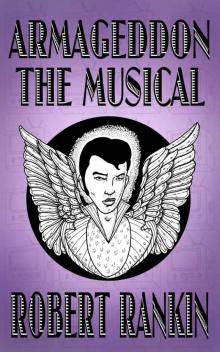 Armageddon: The Musical (Armageddon Trilogy)
Armageddon: The Musical (Armageddon Trilogy)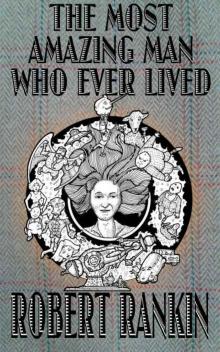 The Most Amazing Man Who Ever Lived (The Cornelius Murphy Trilogy Book 3)
The Most Amazing Man Who Ever Lived (The Cornelius Murphy Trilogy Book 3)